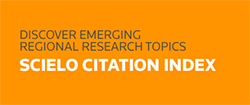Building exile identity through poetic translation: Claribel Alegría and Carolyn Forché
Resumen
Claribel Alegria is one of the main voices in 20th-century Latin American poetry. She always called herself a Nicaraguan-Salvadoran and kept this hyphenated identity throughout her adult life abroad. This paper aims at showing the way in which Alegría’s poems in Flores del volcán (1982) and their translations into English by Carolyn Forché represent for an English-speaking readership what Central American identity meant in the late 1970s and early 1980s. Though the volume received attention in its day, no deep studies have been published regarding its connection to Latin American identity. This article draws notions from Antoine Berman’s translatology, Lawrence Venuti’s idea of the invisibility of translators; Doreen Massey’s and Setha Low’s ideas about the spatialization of culture, identity and social interaction. By applying the methods of translation studies and the spatial turn in the literary field, we conclude that Flowers from the Volcano presents readers with what Forché suggests is the social: namely, that which stands between the political and the personal in poetry.
Palabras clave
DOI: http://dx.doi.org/10.22201/cialc.24486914e.2025.80.57680
Enlaces refback
- No hay ningún enlace refback.









